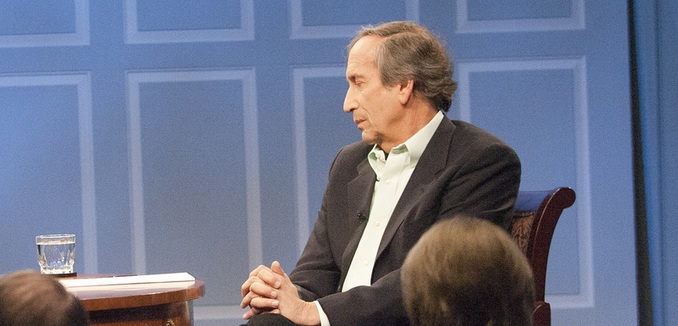The emerging nuclear deal with Iran will not “end Iran’s ability and motivation to have a nuclear-weapons option” wrote Aaron David Miller, a State Department official in both Democratic and Republican administrations, in an analysis published today in Time. After noting that the likely result of the deal is the emergence of “a richer and stronger Iran, one pushing for a Middle East more hostile to the U.S.–and one that will still retain the capacity to build nuclear weapons,” Miller filled in the details.
Iran will agree to what will likely be a smaller, more easily monitored nuclear program. But there can be no real assurance, let alone guarantee, that this will be the “forever” deal Secretary of State John Kerry referred to. What is guaranteed–what will be the new normal in the Middle East–is that Iran will emerge as a state with the right to enrich uranium and continue R&D while maintaining some nuclear infrastructure. Iran has played us and its card well, profiting from sanctions relief without abandoning its nuclear-weapons aspirations, let alone its repressive policies at home or its expansionist aims abroad.
The Obama Administration argues that regardless of Iran’s behavior in the region, constraining Tehran’s nuclear program is important in its own right. But Iran is not Japan, a nuclear threshold state that respects international principles. It’s impossible to separate the nuclear issue from Iran’s regional aspirations. Keeping the world on edge about Iran’s nuclear-weapons capacity and ensuring that the U.S. remains an adversary are still vital for the regime’s survival–and this agreement isn’t going to make Iran a moderate anytime soon.
The nuclear deal will bring Iran money and legitimacy in a turbulent region. Iran has influence on just about every issue the U.S. confronts in the Middle East: Syria, Iraq, Lebanon, ISIS, Yemen. And while Tehran is prepared to cooperate when that serves its interests, its view of the region is not Washington’s. Far from constraining Iran’s power, the deal may well enhance it as it directs more resources to its Iraqi Shi’ite, Yemeni Houthi, Syrian Alawite and Hizballah allies and surrogates. And the opening to Iran has alienated Saudi Arabia and Israel, U.S. allies who fear Iran’s rise.
This is a theme that Miller has long been articulating. In January he wrote, “if the administration is too eager for an agreement, it will find itself…with an emboldened Iran…untransformed, unrepentant, and in a stronger … position to challenge U.S. interests in a turbulent Middle East.” In an essay published in April, Miller warned that if the deal doesn’t moderate Iran’s behavior, “we’ve only bought ourselves a bigger [crisis] down the road.”
[Photo: Miller Center / Flickr ]




